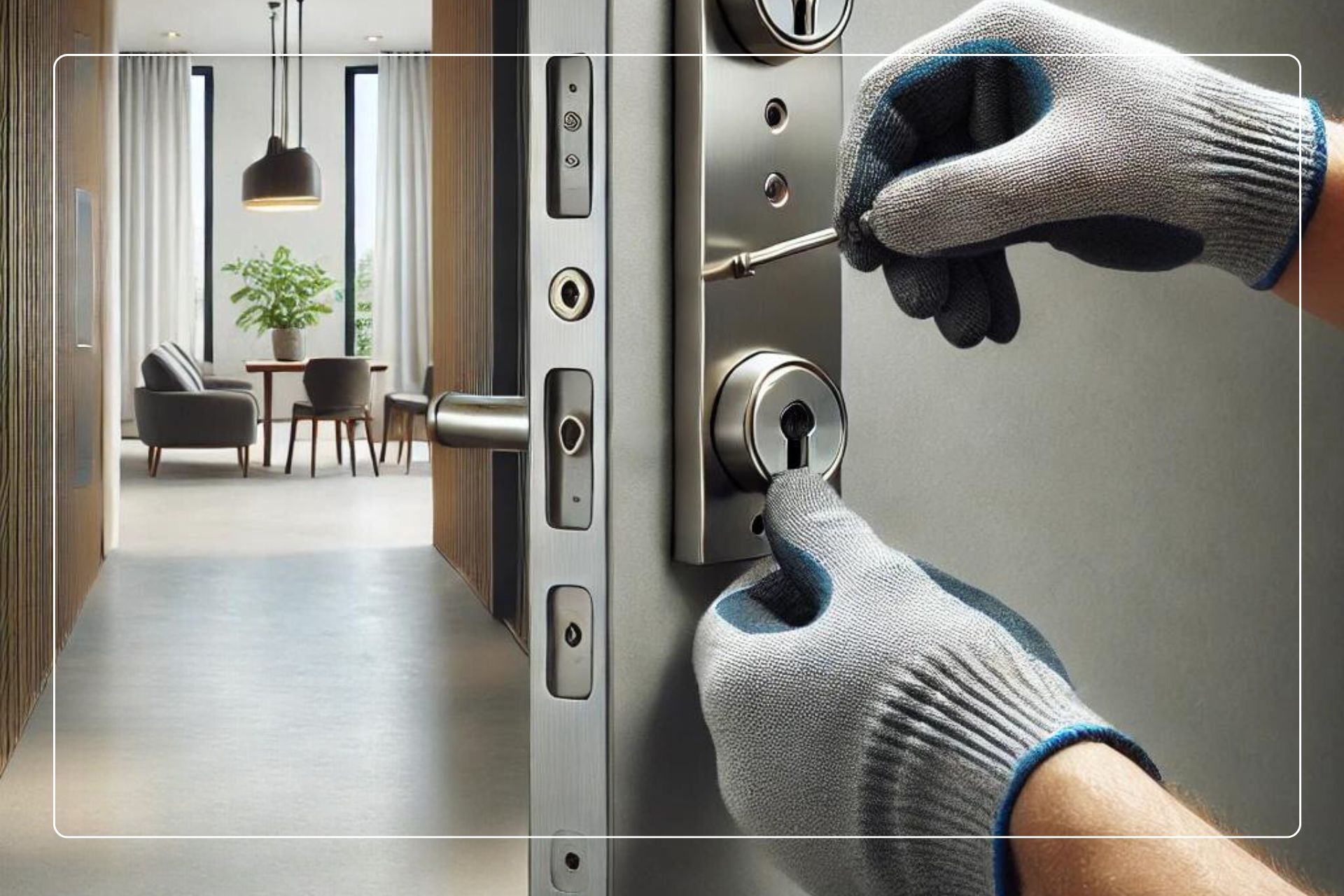Alright, picture this: you’ve just polished off the final details of your rental, it’s looking snazzy and ready for the next tenant. But hold on a second—before you hand over those shiny keys, we need to tackle a crucial detail. Yep, you guessed it: changing the locks. Consider it the final touch on your landlord masterpiece, the one that seals the deal on safety for everyone involved. Why is changing locks between tenants as vital as your indispensable morning brew? Let’s break it down!
| Guide to Changing Locks Between Tenants | |
|---|---|
| Aspect | Details |
| Why Change Locks | Enhances security, prevents unauthorized access, legal compliance, peace of mind for tenants and landlords. |
| When to Change Locks | 1. Between every tenancy. 2. After lost keys or security incidents. |
| How to Change Locks | 1. Assess lock needs based on property type. 2. Choose high-quality locks. 3. Consider professional installation for precision. |
| Risks of Not Changing | Unauthorized access, legal liability, potential theft or security breaches, compromised tenant trust. |
| Best Practices | Conduct regular security audits, maintain transparency with tenants, invest in high-quality locking mechanisms. |
Why Change Locks Between Tenants?
Safety Concerns
Safety first, right? When old tenants move out, they might return all copies of the keys, or so they say. But can you be sure? A previous tenant with a spare key could pose a real security risk, making your new tenants feel less secure and potentially leading to unwanted situations. By changing locks, we nip these risks in the bud.
Legal and Privacy Considerations
Did you know? As a landlord, you could be on the hook legally if you don’t change the locks and something goes awry. It’s all about privacy and security. Tenants have a right to feel secure in their new home, knowing that no one else has the key to their personal spaces. It’s not just good ethics—it’s often part of local housing laws.
Peace of Mind for Landlords and Tenants
And let’s not forget the peace of mind. Both you and your tenants sleep better knowing the locks are fresh and that the old tenants no longer have access. It’s a fresh start for everyone, which builds trust and reassures everyone involved that their well-being is a top priority.
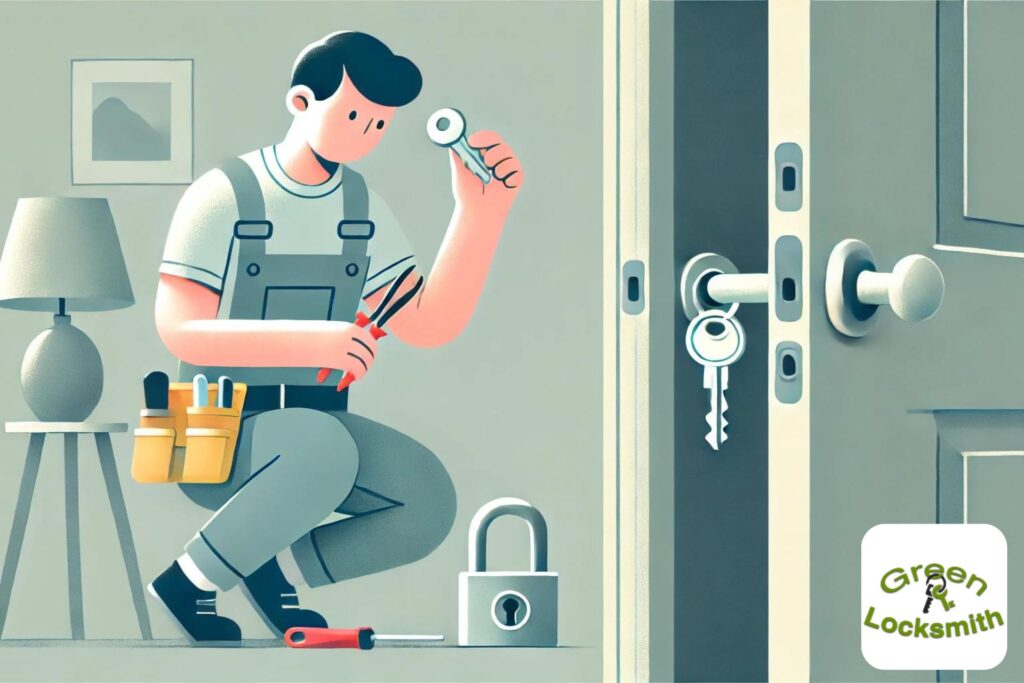
What Are the Risks of Not Changing Locks Between Tenants?
Unauthorized Access and Security Breaches
Imagine this: a former tenant pops in unannounced. Sounds unlikely? Well, it happens, and it’s unsettling for everyone. Old tenants might still have emotional attachments to the property or even malicious intentions. Changing locks is a straightforward barrier against such potential breaches.
Liability Issues
Here’s where things get even more serious. If a security issue arises from unchanged locks, guess who’s potentially liable? Yep, the landlord. If personal items are stolen or worse, the property owner could be held responsible for damages. It’s a legal and financial mess you don’t want to find yourself in.
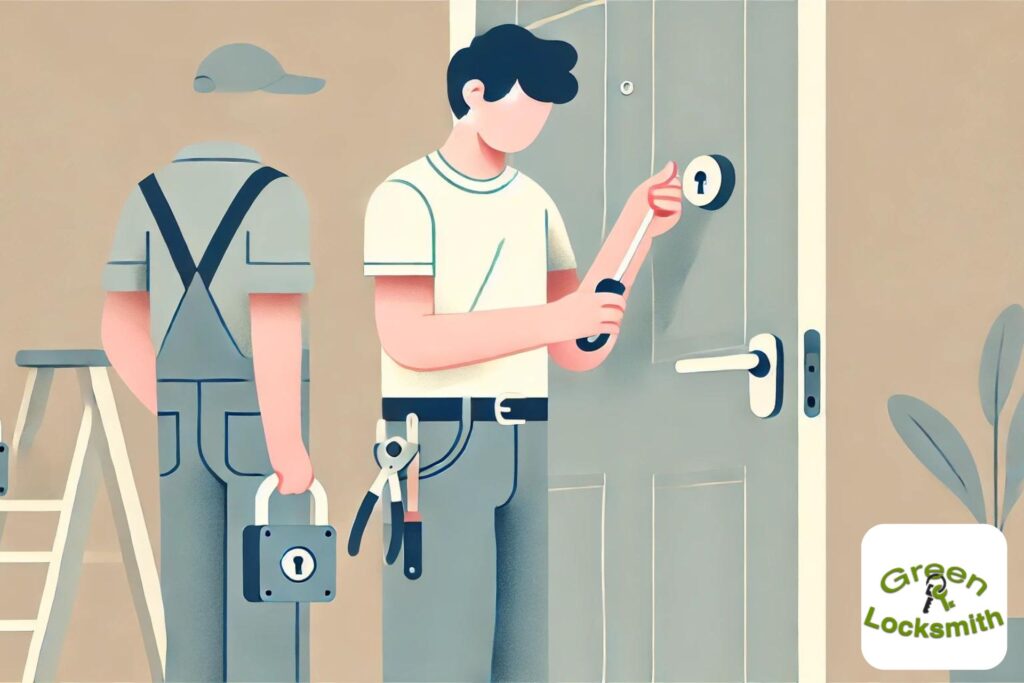
How Often Should Locks Be Changed?
Between Every Tenancy
This one’s a no-brainer for us. Every time a tenant moves out, the locks should change. It’s a standard part of our turnover process, ensuring that each tenant has a secure start.
After Lost Keys or Security Incidents
Lost keys? It happens. If a tenant loses their keys, it’s time for a lock change—not just a key replacement. And after any security incident, a lock change is a must to fortify the property.
Step-by-Step Guide on Changing Locks
Assessing Your Lock Needs
First things first, assess what type of lock best suits your property. Is it more urban, or perhaps a quiet suburban house? Different settings might require different security levels.
Choosing the Right Locks
There are plenty of options—deadbolts, electronic locks, you name it. We always recommend going for top-quality, reliable locks that meet current security standards. This isn’t just about following trends; it’s about ensuring durability and effectiveness.
Hiring a Professional vs. DIY
Sure, DIY is great for crafting a birdhouse or throwing some paint on the walls, but when it comes to your locks, it’s probably wise to tag in the pros. Locksmithing? It’s not just a twist-and-shout with your screwdriver—it’s about precision, alignment, and making sure everything clicks without a hitch. Think of us as the lock whisperers; we don’t just change your locks, we pamper them into perfection. So, save the DIY for your Pinterest projects and let us handle the lock magic!
Installation Process
Our squad is on it like a locksmith on a lockout call! We handle your lock installations with ninja-like efficiency, making sure everything clicks into place perfectly on the first try. Our process? We kick out the old guards (locks, that is), roll out the red carpet for the new ones, and then put them through a lock boot camp to ensure they’re up to snuff. Trust us, by the time we’re done, your locks will be so smooth, you’ll think they came with a user manual!
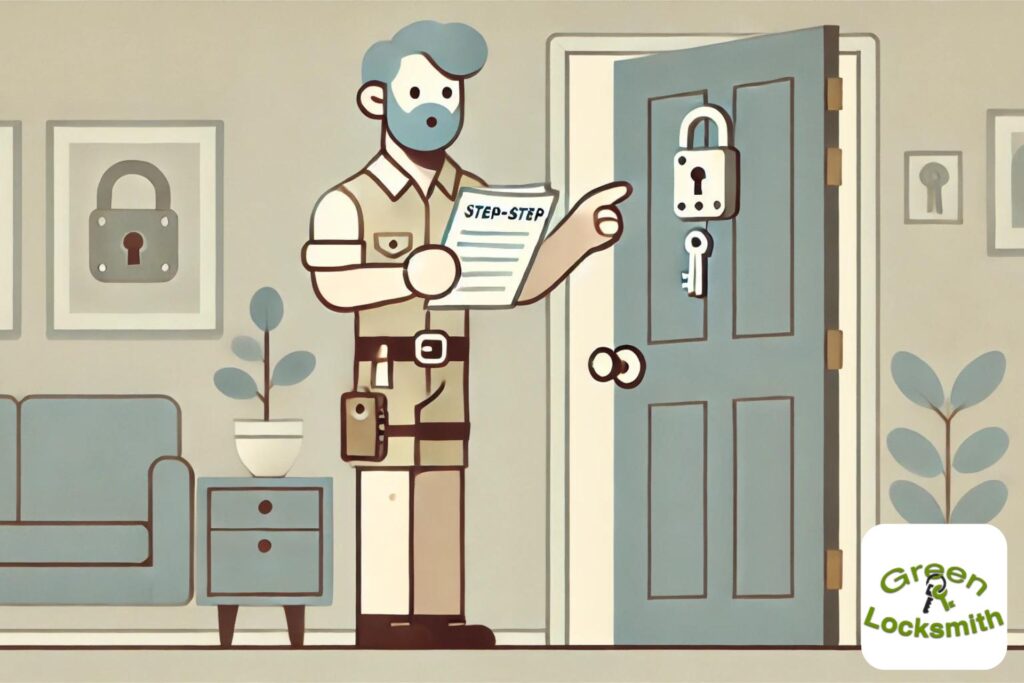
Best Practices for Landlords
Regular Security Audits
Conducting regular security audits of your properties ensures everything is up to snuff. It’s not just about locks but overall security—windows, alarms, the works.
Maintaining Good Tenant Relationships
Transparency goes a long way. Let your tenants know about your security measures. It reassures them and shows that you care about their safety as much as they do.
Quiz: Changing Locks Between Tenants – Are You Doing It Right?
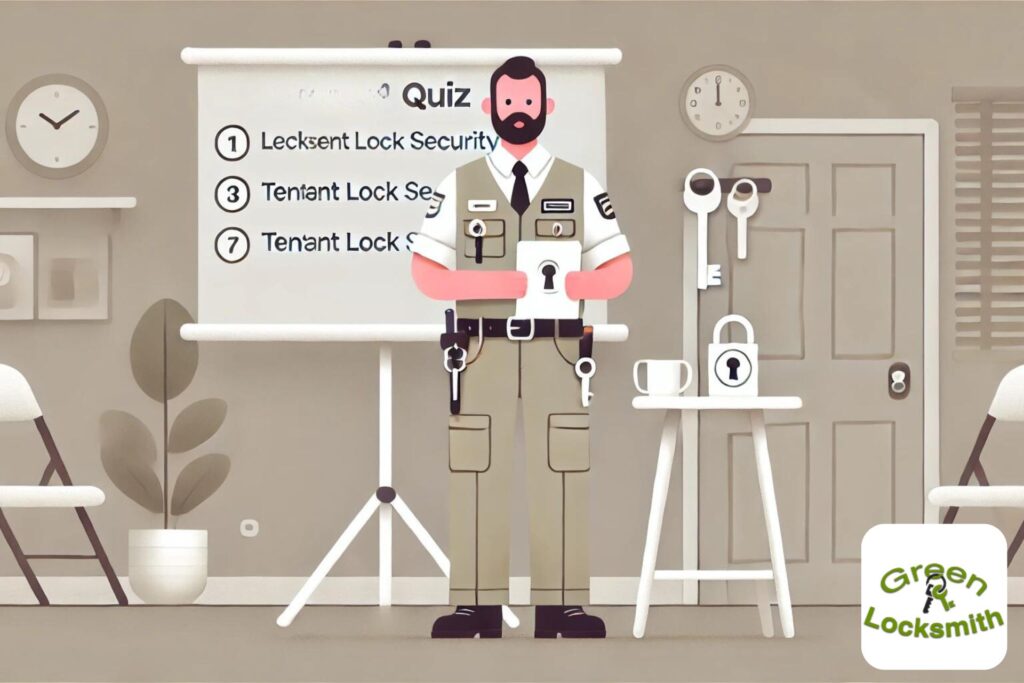
Feeling like a quizmaster today? Let’s put your rental security smarts to the test!
1. When should you definitely swap out the locks on your rental property?
A) Only when the locks look like they’ve seen better days
B) With each new tenant that moves in
C) Whenever you find a spare key lying around
D) Every few years, like clockwork
2. What’s one of the possible consequences of not changing the locks after tenants move out?
A) Usually, it’s all good, no worries
B) Surprise visits from your former tenants
C) The new tenants taking matters into their own hands and changing them
D) Both B and C, actually
3. Aside from at the end of a tenancy, when might it be a good idea to change the locks?
A) If a tenant reports lost keys
B) When you’re repainting the doors and want a fresh look
C) If tenants want locks that match a new decor
D) Any of the above reasons are valid
4. Considering an urban setting, what locks might you consider?
A) Just some basic padlocks
B) Heavy-duty deadbolts for extra security
C) Stylish handle sets that look great
D) None, since urban areas are totally secure, right?
5. What’s your move if there’s a break-in or another security incident at your property?
A) Sit tight and see if it’s a one-off
B) Swap those locks out, pronto!
C) Give your tenants a break on the next rent
D) Maybe it’s time for new windows?
6. What’s a legal reason to keep those locks fresh?
A) To keep your property looking trendy
B) Boost the overall value of your rental
C) Avoid liability for unauthorized access
D) It’s more affordable than other updates
7. What should you do if you’re not exactly handy with tools and locks?
A) Give it a whirl with help from YouTube
B) Better call in a professional locksmith
C) Maybe your handy friend can help out
D) Just stick with the old locks—no big deal
8. What’s another vital practice for landlords to keep their properties top-notch?
A) Conducting regular security check-ups
B) Throwing a yearly bash for your tenants
C) Keeping the paint fresh and crisp
D) Swapping out property management teams
Answers:
- B) With each new tenant that moves in
- D) Both B and C, actually
- A) If a tenant reports lost keys
- B) Heavy-duty deadbolts for extra security
- B) Swap those locks out, pronto!
- C) Avoid liability for unauthorized access
- B) Better call in a professional locksmith
- A) Conducting regular security check-ups
Conclusion
Switching locks between tenants isn’t just about upping your security game—it’s practically Property Management 101. It’s about safeguarding more than just the walls and windows; it’s about wrapping a protective arm around the safety and sanity of everyone who calls your place home.
Got a nagging worry about your property’s defenses? Thinking it might be time to beef up those locks or throw in some extra security magic? Don’t just sit there—reach out to us! We’re all about making sure your rental journey is as smooth as a well-oiled deadbolt. Let’s keep those good times secure and sailing smoothly for you and your tenants!
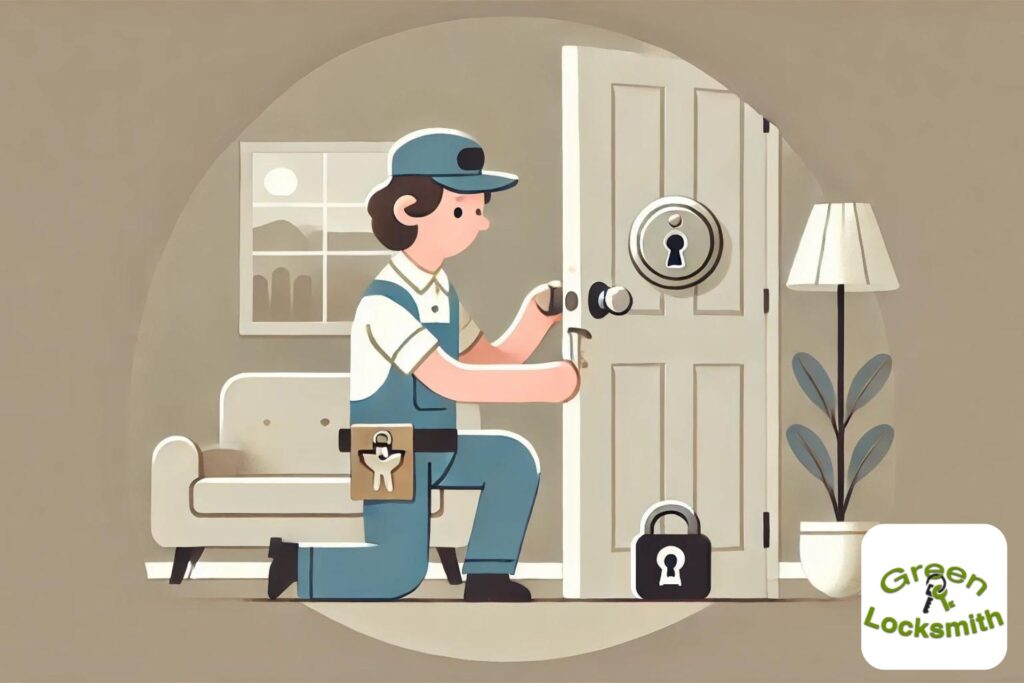
FAQ: Changing Locks Between Tenants
What does “changing locks between tenants” mean?
It’s about updating the lock hardware or rekeying the existing locks on a rental property each time a tenant moves out. This crucial step ensures that former tenants can’t sneak back in with old keys, offering new tenants the peace of mind that comes with knowing their keys are the only ones that can open their new home.
Why is changing locks between tenants important for landlords?
Changing locks between tenants prevents past tenants from wandering back into a property they no longer rent. Imagine a former tenant still having a key and the kind of trouble they could cause, from uninvited visits to more serious security breaches like theft. By updating the locks, landlords safeguard their property and ensure that new tenants can feel truly secure in their private space, without worries about unexpected intrusions.
How often should landlords change locks between tenants?
Ideally, landlords should switch out the locks every single time a tenant moves out—no exceptions. This isn’t just a good habit; it’s a crucial aspect of property management. By changing the locks regularly, landlords guarantee that each new tenant steps into a secure and private living environment. It ensures that past tenants can’t just pop back in, giving peace of mind to everyone involved and keeping the living space truly private.
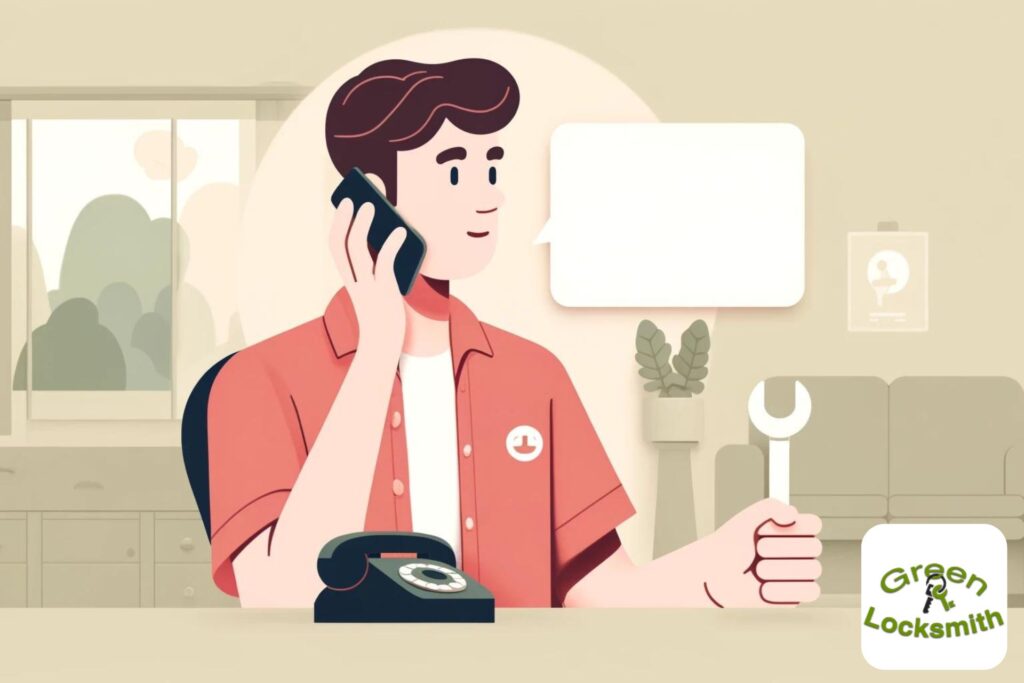
Can landlords change locks themselves, or should they hire a professional?
While some landlords might be handy enough to juggle a wrench and a lease agreement, when it comes to changing locks, it’s usually smart to dial up a professional locksmith. Why play it solo? Proper installation is key (pun intended) to ensuring your locks do more than just look shiny. A pro doesn’t just bring tools and talent to the table—they’re also masters of modern mischief prevention, equipped with the latest in lock tech. They’ll provide top-tier locks that even the craftiest of intruders would balk at, giving everyone involved that extra layer of sleep-at-night security. So, unless your DIY skills are as sharp as a locksmith’s picks, it might be time to hand over the hardware.
What are some risks of not changing locks between tenants?
Ah, the classic landlord conundrum: to change the locks, or not? Well, skipping this step could turn your rental into an accidental open house. Picture this: a former tenant, who’s kept their old key, decides to take a nostalgia tour through their ex-pad—without an invite. Awkward, right? But it’s not just about cringe-worthy reunions; there’s a real risk of theft, vandalism, or worse, turning your property drama into a full-blown security soap opera. So, why risk a sequel with the old tenants? A quick lock change keeps your rental’s storyline smooth and secure for everyone involved.
